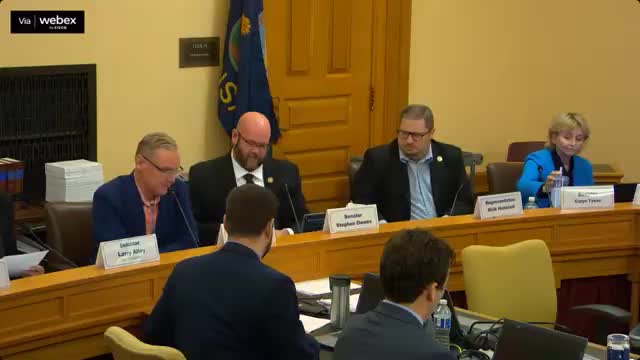Senate committee hears summary of SB 30: proposed legislative review for new or materially changed occupational licenses
Get AI-powered insights, summaries, and transcripts
Subscribe
Summary
The committee reviewed the conference committee report on SB 30, which would require legislative approval by joint resolution before any new occupational license or material change to an existing license adopted by an agency could take effect; KLRD and reviser office raised procedural and scope issues.
Charles Reimer, representing the Revisor's Office, briefed the committee on the conference committee report for SB 30, a measure that would require legislative approval before a new occupational license or a material change to an existing occupational license becomes effective.
Under the CCR described by Reimer, agencies would continue to draft regulatory language, but any new license or material change adopted after the bill's effective date would require approval by the legislature via a joint resolution unless the legislature had already ratified the change by statute. The measure defines "material change" and "occupational license" and creates a new annual reporting duty for agencies to the Joint Committee on Administrative Rules and Regulations listing each occupational license and related information including number of licensees, fees, education and testing requirements, and whether the license is federally required.
Reimer said the CCR also requires Legislative Research (KLRD) to prepare analyses for relevant standing committees that include assessments of necessity, alternatives, costs and benefits, interstate comparisons and whether the proposed change is the least-restrictive means to accomplish the purpose. Reimer noted the conference report was adopted by the House but not acted upon by the Senate before adjournment.
KLRD said it is neutral on the bill overall but flagged concerns about language that asks KLRD to provide policy positions or subjective recommendations beyond its traditional factual analysis role; KLRD also noted potential fiscal impacts if additional staff or analysis time were required.
Committee members discussed whether KLRD's role would be limited to factual analysis and whether the CCR would cause delays for necessary regulations. Reimer said clarifying technical edits could be made and that the CCR would need further committee review if changes are sought.
Ending: The committee requested follow-up with KLRD and the Revisor's Office to refine statutory language and examine workload implications before SB 30 is considered in a future session.
